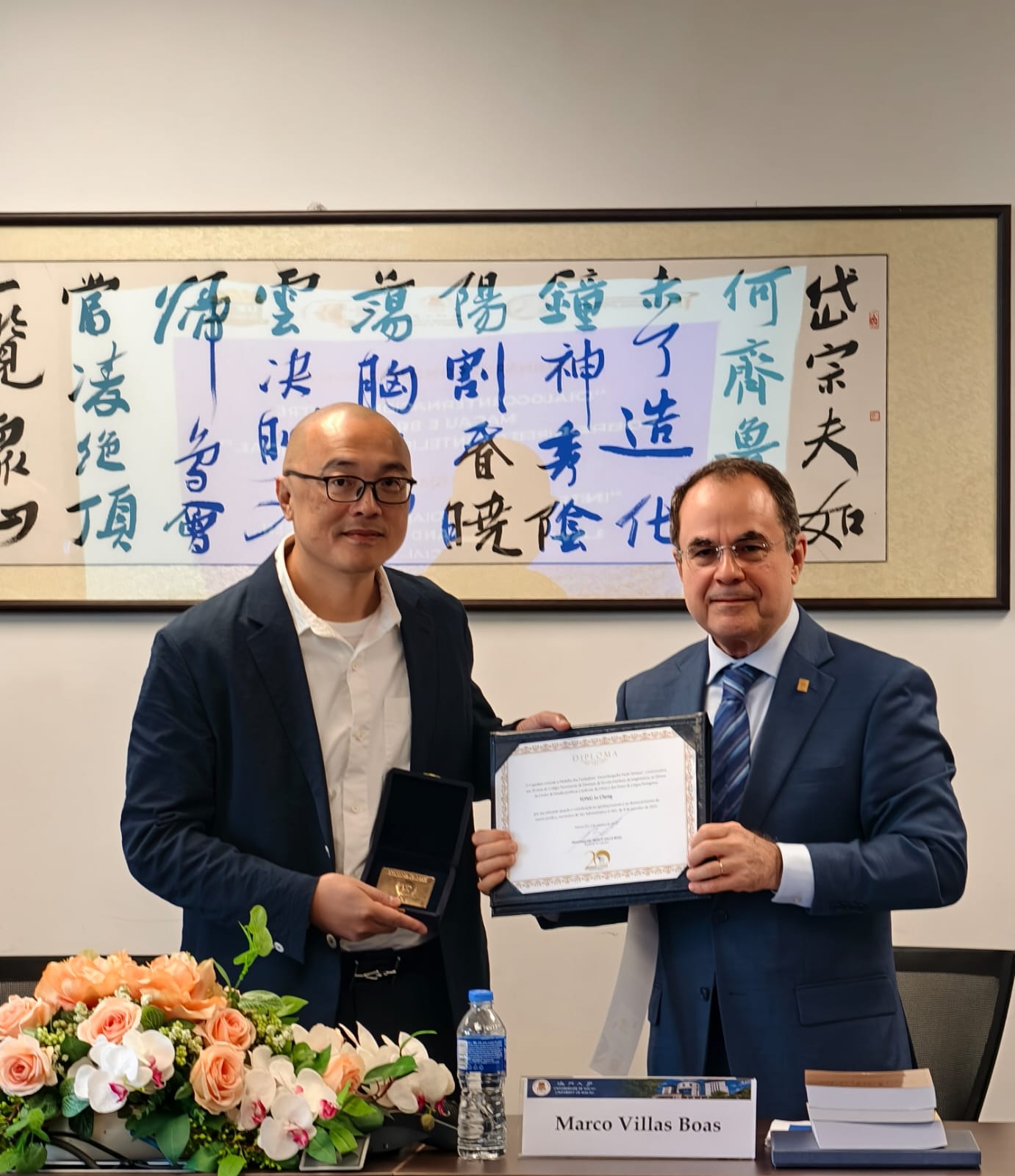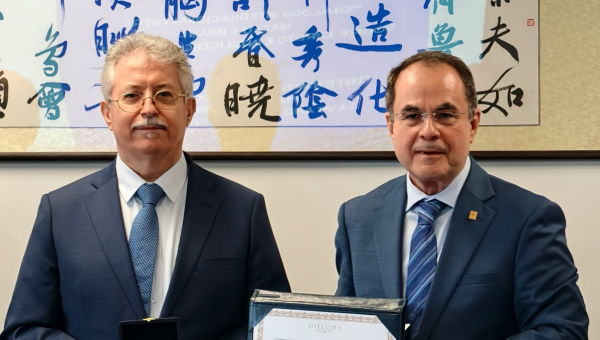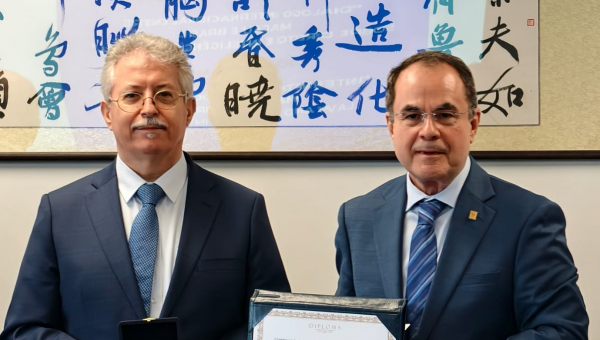
Monday (October 20th) was marked by productive dialogues and academic exchange at the College of Law of the University of Macau. In the heart of the Special Administrative Region of China, the Brazilian delegation, made up of magistrates and researchers from different States, participated in the Joint Seminar on "International Dialogue between Macau and Brazil: On Law and Artificial Intelligence", an event that integrates the programming of the international course on Global Connections: Law, Innovation and Artificial Intelligence.
Promoted by the Permanent College of Directors of State Schools of the Magistracy (Copedem) and its associated schools - with emphasis on the Superior School of the Judges of the State of Tocantins (Esmat) - and with support from the Federal University of the state of Tocantins (UFT), the international course aims to foster institutional exchange and continuing training in emerging issues of the Law.
Coordinated by the Justice Marco Villas Boas, president of Copedem and general director of Esmat, Professor Tarsis Barreto de Oliveira and Professor Ana Beatriz de Oliveira Pretto, the training seeks to promote not only technical learning, but also connections among different legal traditions.
Seminar in Macau
During the seminar, topics discussed included the safe and ethical use of artificial intelligence in the Justice System as a tool to assist in the practice of procedural acts, as well as issues related to facial recognition, criminal prediction algorithms, criminal liability in automated systems and AI-mediated environmental governance.
The discussions were led by Justice Marco Villas Boas, Professors João Ilhão Moreira, Jiang Yiwa, Tong Io Cheng, Tarsis Barreto de Oliveira and Judge Wellington Magalhães, focusing on the legal implications of artificial intelligence in the criminal and human rights fields.
The event brought together Chinese and Lusophone professors in an environment of academic cooperation, fostering a comparative dialogue between the Brazilian civil law system and the legal model in force in Macau.
On the occasion, Justice Marco Villas Boas presented the Commemorative Medal for the 20th Anniversary of Copedem to Professor Tong Io Cheng, director of the College of Law at the University of Macau. The tribute symbolized the strengthening of institutional relations and the joint commitment to legal education as a bridge for international cooperation.
Time Line Of The Mission
The journey of the Brazilian delegation began the previous week, on October 14th, in Beijing, where the participants devoted themselves to the study of topics such as judicial responsibility in the era of AI, data protection and challenges of judicial training in the face of new technologies. The visit to the Supreme Court of China, the Internet Court and the Court of Intellectual Property integrated the schedule in the Chinese capital.
Then, the delegation went to Hangzhou, where it visited the technological pole that houses companies like Alibaba and Hikvision, deepening the debate on innovation and Justice.
In Macau, the panels focused on ethical, philosophical, criminal and environmental issues, with artificial intelligence as the central focus of discussions, presented both as a transformative tool and as a regulatory and ethical challenge.
On Tuesday (21st), the programming continued with a visit to the Legal and Judicial Training Center of Macau. Then the delegation left for Shenzhen, where they participated in an immersion at the Hyundai factory, closing the Chinese stage of the course with a focus on innovation, governance and digital transformation.




_thumbnail_thumbnail.jpeg)
_thumbnail_thumbnail.jpeg)
_thumbnail_thumbnail.jpeg)
_thumbnail_thumbnail.jpeg)
_thumbnail_thumbnail.jpeg)

_thumbnail.jpeg)
_thumbnail.jpeg)
_thumbnail.jpeg)
_thumbnail.jpeg)
_thumbnail.jpeg)

